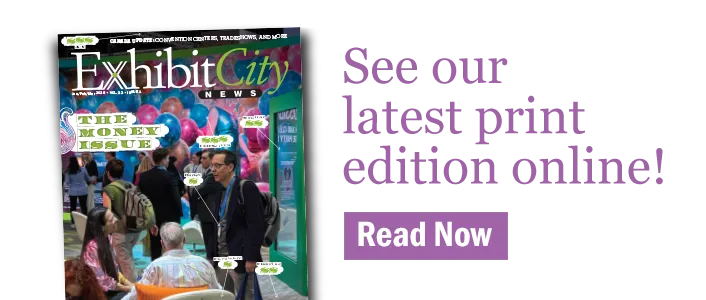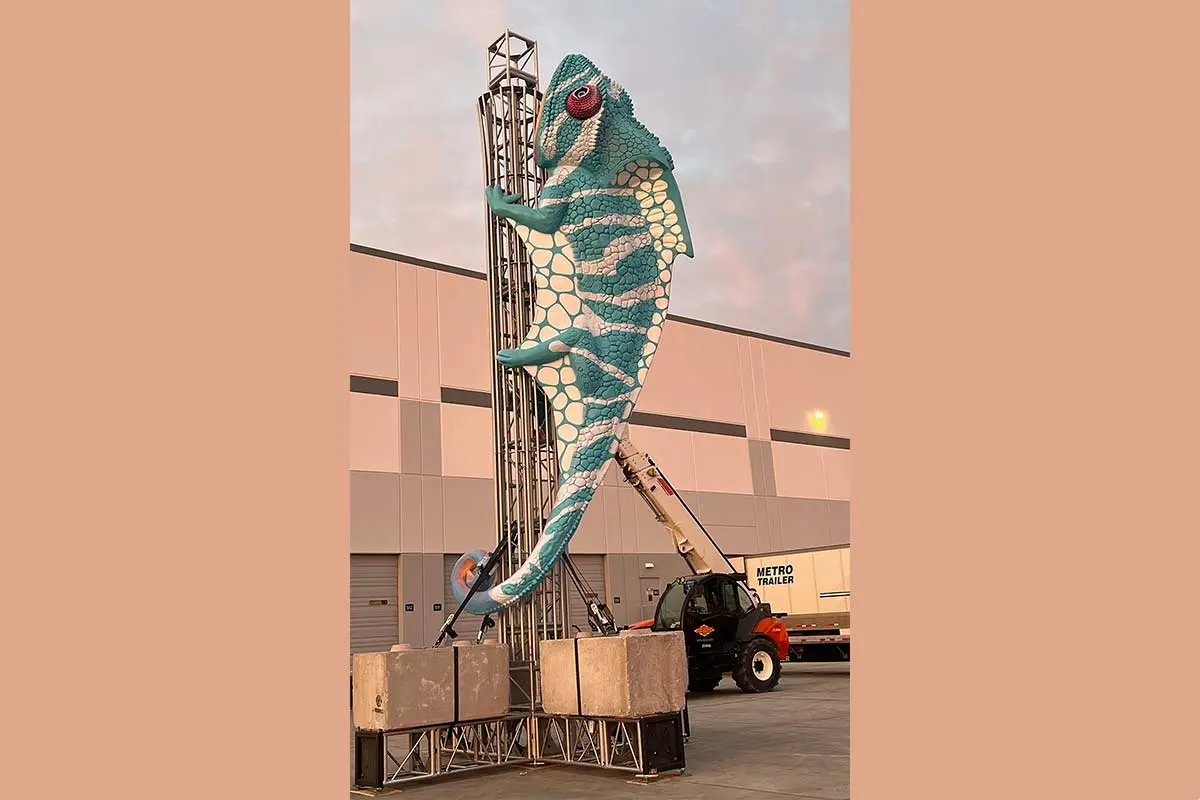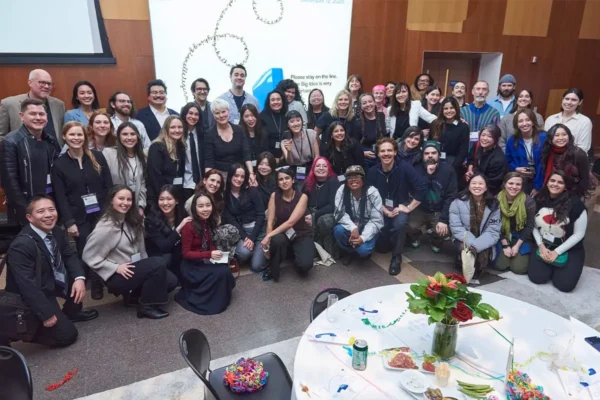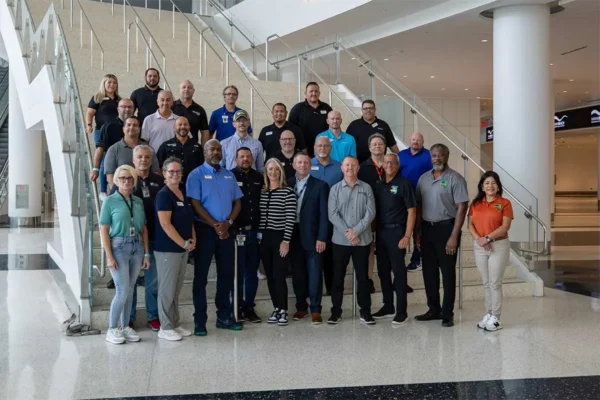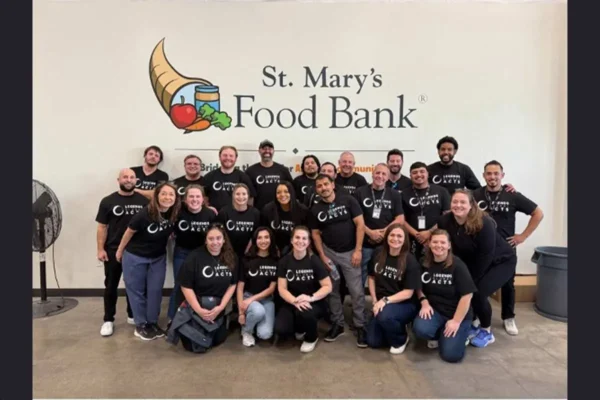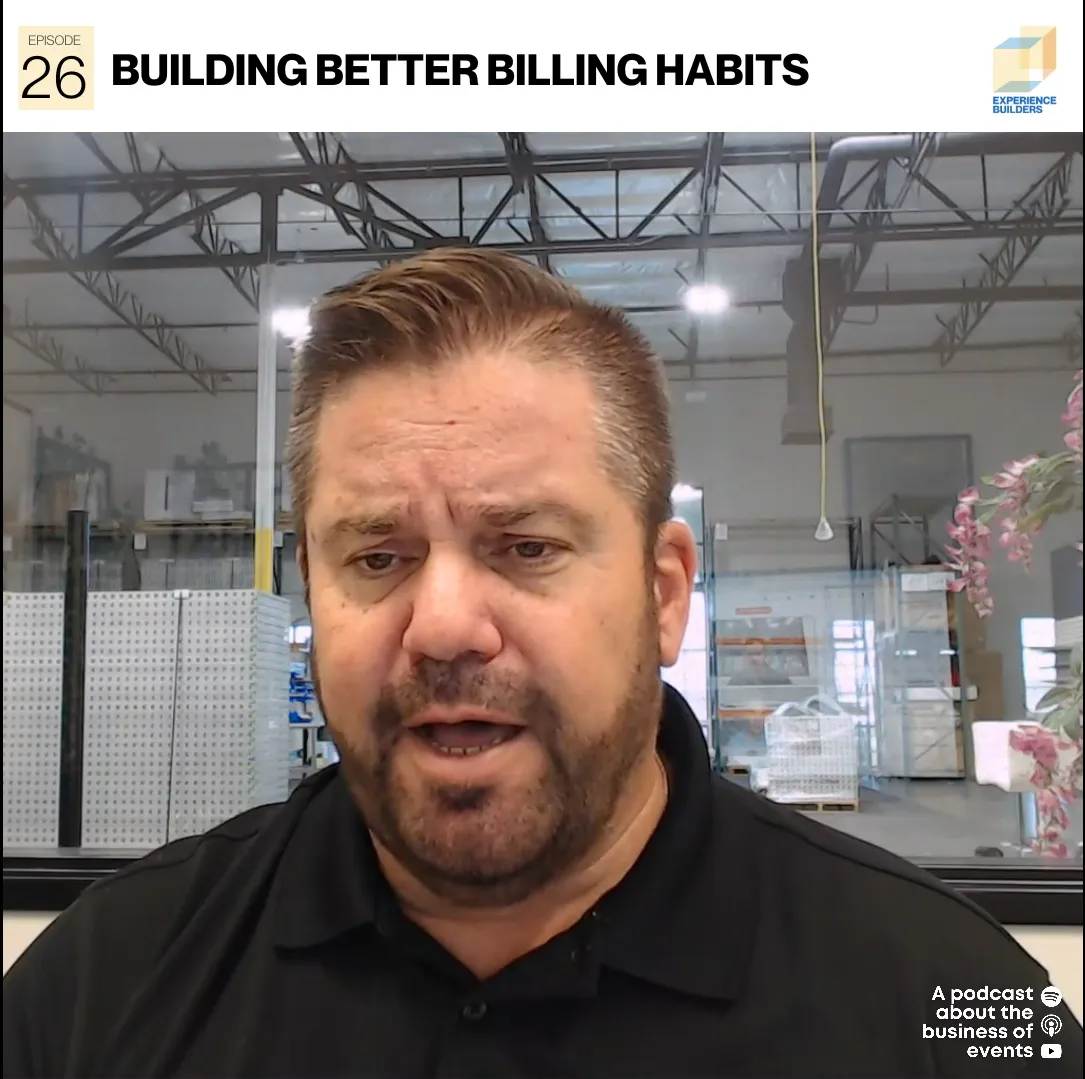This situation is on going. This story was written in early June 2025. Please keep an eye out on Exhibit City News for more news regarding tariffs.
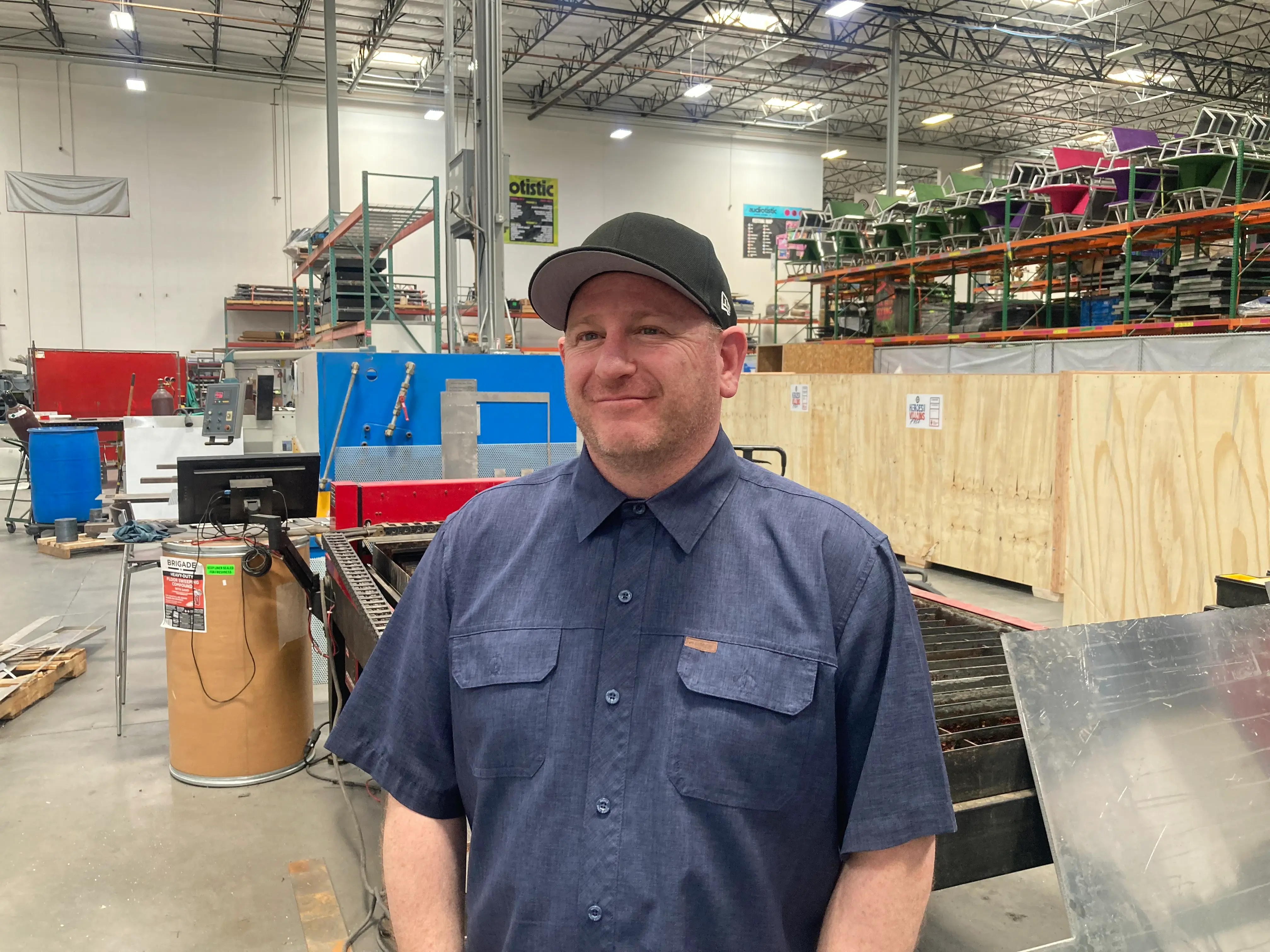
It’s not so much the threat of trade tariffs that concerns Justin Moss, owner of the Juice Shop, a steel fabrication plant in North Las Vegas. It’s the cost of capital.
Tariff announcements from President Donald Trump have rattled financial markets and prompted forecasts by some of a national recession, making it harder for a small business like the Juice Shop, with about 40 employees and $8 million in annual revenue, to borrow money.
“To borrow money is more expensive than ever,” Moss says during an interview at his shop. “If you rely on the financial markets, you’re paying more money than ever on that money. So, the tariffs, as a word, are affecting us, but not necessarily affecting us on the product we’re buying.”
The Juice Shop, which recently expanded to 50,000 square feet, builds exhibit booths, stages, and special décor for Las Vegas conventions, clubs, hotels and events such as the Electric Daisy Carnival. Major clients include Freeman, Impact XM, and GES.
“He’s increased tariffs so high that people think the government of China or the government of Canada pays the tariffs,” Moss says. “We pay the tariffs. Our vendors pass it to us, and we pass it to our clients.”
Moss has been building stage sets and exhibit booths since age 16 and feels passionate about the tradeshow industry. Even with the tariffs, the industry will survive, he assures.
“It’s not going away. It’s just a challenge we have to overcome, the tariffs and regulations,” Moss says.
COLD SHOWER
Despite news reports heralding Trump’s trade tariffs, the U.S. economy remains stable, consumer confidence has improved, first-quarter GDP dipped a very slight 0.2 percent, and rampant inflation has eased to 2.8 percent.
Robert Maltbie, financial analyst and president of Singular Research, likens the tariffs to a cold shower. It’s going to be chilly at first, but it won’t be “cataclysmic,” he says.
The simplest way to avoid tariffs is to build in America, and that’s playing out with an influx of foreign investment.
Maltbie cites Japan pouring $1 trillion into LNG import commitments; Dubai and Saudi Arabia making $600 billion in direct U.S. investments; and Taiwan Semiconductor allocating $100 billion for U.S. factory construction.
“The cold shower is setting the stage for the next U.S. economic boom and those who recognize it early will be the biggest winners,” Maltbie asserts. “The rest of the world needs access to U.S. consumers more than we need access to their goods.”
TRADE IMBALANCE
The Trump administration, seeking to reduce the massive U.S. trade deficit, threatened to slap a 25 percent tariff on steel and 10 percent tariff on aluminum raw materials from China. The president signed an order on June 4 to double the steel tariff to 50 percent. Ongoing negotiations have placed the tariffs on hold, along with legal challenges.
At issue is excess global metal production that has reduced prices and resulted in the closure of many U.S. factories. The government estimates that U.S. steel mills are operating at 73 percent capacity, and more than half of U.S. aluminum capacity is dormant.
Reuters reported data showing a 34.5 percent decline in Chinese exports in May. Exports to the United States have dropped the most since early 2020, and factory-gate deflation is the worst in nearly two years.
Imports from Canada and Mexico are temporarily exempted from the tariffs, pending a successful renegotiation of NAFTA. Imports from Argentina, Australia, Brazil, the European Union, and South Korea are also temporarily exempted.
American companies are eligible for a one-year tariff exclusion if they can prove that their raw material is not made in the United States in reasonably available quantity or satisfactory quality.
STEEL SUPPLY
At the Juice Shop, a subsidiary of Denver-based Pineapple Agency, half-inch steel plates are stacked outside along with other raw material needed for construction. Box stands are painted and ready for delivery.
Moss concedes that business costs have increased, mainly from labor, but he’s yet to encounter a supply shortage resulting from the tariff scare or reduced exports from China.
“I don’t think we’re seeing a shortage like we did for COVID,” he says. “We see some products … not exactly a shortage … but not stocked at a level as high as we’d like.”
Tariffs are going to hurt the tradeshow industry, Moss figures, generally because of the “down line” in areas such as exhibitors’ budgets, which means they may go to fewer conventions, take up less space, redirect money to private events.
“The thing that helps Vegas is it’s relatively cheaper than other cities,” Moss counters. “Can the convention center lower labor union costs? Can the hotels lower resort fees? Everybody can help lower the tariff costs. I would like to know if the exhibitors are getting value for their money.”
POTENTIAL HARM
The Specialty Equipment Market Association, producer of the SEMA Show that brings 160,000 conventioneers to Las Vegas, has joined with other business groups, including the Alliance for Competitive Steel and Aluminum Trade, to warn the president and Congress that the tariffs could potentially harm American companies, workers and consumers.
The U.S. Trade Representative published a list of about 1,300 product categories covering nearly $50 billion worth of imports from China that could be subject to the proposed 25 percent tariff. The list includes miscellaneous metal and rubber parts for auto equipment, chemicals, machinery, tools, measurement, and medical devices.
If trade negotiations do not make sufficient progress, another $100 billion worth of U.S. imports may be subject to tariffs. Retaliatory tariffs threatened by China are targeted primarily at U.S. agricultural products.
There is already marketplace confusion about how they are being imposed and their potential impact. SEMA is closely monitoring this matter and will keep members informed as developments unfold.
Join the conversation on Exhibit City News’ LinkedIn!



